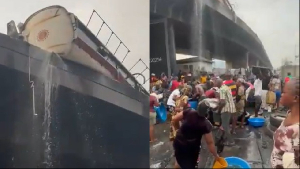Over a year after Standard Alliance Insurance Plc and Niger Insurance Plc were liquidated, thousands of policyholders whose claims were due long before the regulatory intervention are still on the queue while the appointed receiver managers have shut the doors against aggrieved customers. BANKOLE ORIMISAN writes.
Policyholders of liquidated underwriting firms, who suffered insured risks, are seeking the Federal Government’s intervention to resolve their unpaid claims running into billions of naira.
Central to the conflict are the defunct Standard Alliance Insurance Plc and Niger Insurance Plc whose operational licences were revoked last year by the National Insurance Commission (NAICOM).
The underwriting firms’ licences were revoked on June 21, 2022, owing to huge unpaid claims and salaries.
Market observers, who spoke to The Guardian, said the amount owed by the two companies is in billions. They, however, believed that not all the policyholders were due for claims at the time the companies became distressed.
To recover the unpaid claims, the industry regulator, NAICOM, appointed a receiver/liquidator to wind down the two firms.
However, the funds have been trapped in both companies since their operational licences were revoked, as the regulator has not made any progress in fulfilling the outstanding obligations.
NAICOM had urged stakeholders to forward their inquiries to the respective receiver/liquidator of each of the companies for necessary actions. The Commission assured stakeholders of the safety and protection of their interests.
The regulator, through a directive by the Head of Corporate Communications and Market Development, Rasaaq Salami, said the revocation took effect from June 21, 2022.
NAICOM had written to Niger Insurance on March 31, 2022, giving the company 30 days to convince the Commission and the Ministry of Finance that it could resolve its operational challenges.
The firms failed to salvage the company’s fortunes, which nosedived in 2021, after previously recording huge losses in 2020, when the COVID-19 pandemic ravaged the industry.
The two firms were among three troubled companies – Niger Insurance, IGI and Standard Alliance. They were earlier dismembered by the Nigeria Insurance Association (NIA), the umbrella of all insurance companies in the country.
The association said the expulsion implied that the association advised the government, private entities and individuals against dealing with the companies.
Consequently, the companies were unable to participate in the Federal Government’s group life insurance policy and other businesses as the NIA refused them letters of membership, a requirement for securing businesses.
Speaking on this, the former NIA Chairman, Ganiyu Musa, at a press briefing, said the NIA had been doing some housecleaning by beaming its searchlight on member companies that had failed to pay claims to the insured.
He also said the association had focused on discipline among its members. “We have to be very harsh. We have an active committee on discipline and conflict resolution,” he said.
According to him, the committee has been strengthened and empowered. “We go beyond the usual refrain or chastisement to taking active steps to discipline erring members. We have a few of our members that have been suspended and some are about to be expelled,” he said.
An investigation by The Guardian revealed that aside from the two liquidated firms, there are still some unhealthy insurance companies that do not pay claims to their policyholders as and when due. The concerned firms also do not hold yearly general meetings and fail to submit yearly financial reports to the regulator.
The aggrieved policyholders of the ailing firms who have been calling for regulatory intervention include Mack Ogbamosa, Wunmi Chroma, Ankurufu Tsonga, Toyin Olayinka, Dosunmu-Adeyemi Oluwatoyin, Shola O’Neil and Eka Esang. Others are Eze Charles, Gentle Onyeoma, Abidemi Aladelola, Cynthia Inofe and Vera Ogulu.
The individuals have invested in some of the products of Standard Alliance Insurance and Niger Insurance. Painfully, at the maturation of their investments, things fell apart and years later, they are struggling to get back their money.
Some of the policyholders spoke to The Guardian and narrated their experiences. For instance, Mack Ogbamosa, a lawyer, who shared his experience through WhatsApp conversation said: “I invested in the Income Protection Policy (IPP) of Standard Alliance Insurance Company Plc from November 2009. My policy number is IPP/ 10/0007796/ IKJ. By March 2017, I had paid N3,321,075. When my daughter, who is a beneficiary of the policy, was to undergo surgery that year, I needed N2,000,000 for that purpose. I approached my then account manager in Standard Alliance, Philips Igho, who advised I should apply for a loan using my policy as collateral since the policy was almost getting to maturity. After several months of waiting, the company eventually granted my application and gave me a N2,000,000 loan at an interest rate of 15 per cent.
“By April 05, 2019, when the policy matured, I signed the discharge voucher from Standard Alliance indicating that I had a claim payment of N1.44 million as my termination benefit, in the presence of their staff member, Ololade Fajobi. After several months of waiting for the payment, I wrote to NAICOM for intervention on the matter.
“NAICOM did not take any action. It was not until 2021, that I got a response from NAICOM that the company would make efforts to pay.
“I eventually got a part payment of N.7 million on September 1, 2021, after mounting pressure on Standard Alliance for several months outside the company. I was told I would get my balance of N718,395.42 the following month. To date, I am yet to get my balance.”
NAICOM withdrew the company’s operating license and appointed a liquidator, Kehinde Aina Esq. in June 2022 but Standard Alliance went to court in August of the same year to challenge the action of the regulator.
While the policyholders have been up in arms against regulators and the companies, the liquidator has been incommunicado.
The obligation of insurance companies in the country comes under both common law and statutory law. An insurance company’s duty of good faith and fair dealing means it must always act in the client’s best interest. This responsibility, implied in all insurance agreements, prevents the company from acting in bad faith in transactions involving claims.
Hundreds of clients, who had various insurance policies with the companies are frustrated as the companies’ marketers, agents, managers, and top officials at their various branches have gone underground and become incommunicado.
The challenge before Standard Alliance was that it had not held its yearly general meetings for two years. Also, its account has been hidden from the public since 2018.
Besides, the NIA also does not have Standard Alliance’s results as shown in their yearly digest.
The company’s independent auditor, BDO Professional Services, in its report signed by Olugbemiga Akibayo on August 7, 2018, admitted its liquidity challenge.
“Without qualifying our opinion, we draw attention to the shortfall of N1.477 billion in assets cover indicating that the company was not able to generate adequate liquid assets to cover the policyholders’ funds. Due to the large number of policies underwritten by the company, there is a risk that the revenue recorded in the financial statements and the flow of premium information from the underwriting systems to the financial reporting ledger may not be completely accounted for,” the report said.
Niger Insurance had battled to sell off the company’s real estate and investment property valued at N15 billion since 2019 to improve its liquidity and ensure reserve adequacy for better business operations.
The company was one of the biggest insurance companies in the sector but things turned for it and it was unable to pay claims worth billions of naira.
While still in operation, its then managing director/chief executive officer, Edwin Igbiti, said that its assets had been put on sale but it was difficult due to the economic challenges.
He said: “We were paying the claims. But the accumulation of claims on the ground has continued to rise and that is why it looks as if we are not paying at all. The delay in claims is due to the challenge of getting buyers for the assets that we aim to sell.
“Presently, investors are doing due diligence. But the best option we are looking at is to sell the assets quickly because the asset is our money and once we dispose of them; the money will be at our disposal to unlock our liabilities.”
Efforts by The Guardian to reach the receiver/liquidator appointed by NAICOM, whose offices are on Ademola Street, South West Ikoyi, Lagos, proved abortive as the firm refused to respond to phone calls.
Speaking to the developers, the Commissioner for Insurance, Sunday Thomas, was displeased about the inability of the liquidators to pay claims to the aggrieved policyholders.
Thomas said: “I don’t want a situation that will bring about a run on the insurance sector. Imagine today, if somebody complains that he cannot get his money from a bank and CBN pays from the bank’s deposit. What do you think will happen to even those who don’t have issues accessing their funds? There is a likelihood that they will think that something is wrong. People will run to both healthy and unhealthy banks to withdraw their money.
“Beyond this, the statutory deposit is mostly small and may not be able to pay off all liabilities. So, how do we approach this? The most likely thing is that we are going to have to do it on a first-come, first-serve basis. Will this be fair to all? The largest amount in their statutory deposit is probably around N300 million for life and non-life companies, while composite companies have N500 million.
“So, how many claims can we pay with this? If, for instance, a corporate concern like Mobil applies to the deposit for an outstanding claim, what will be left to use for small policyholders that have smaller claims to collect.”
Business News of Monday, 4 September 2023
Source: guardian.ng













